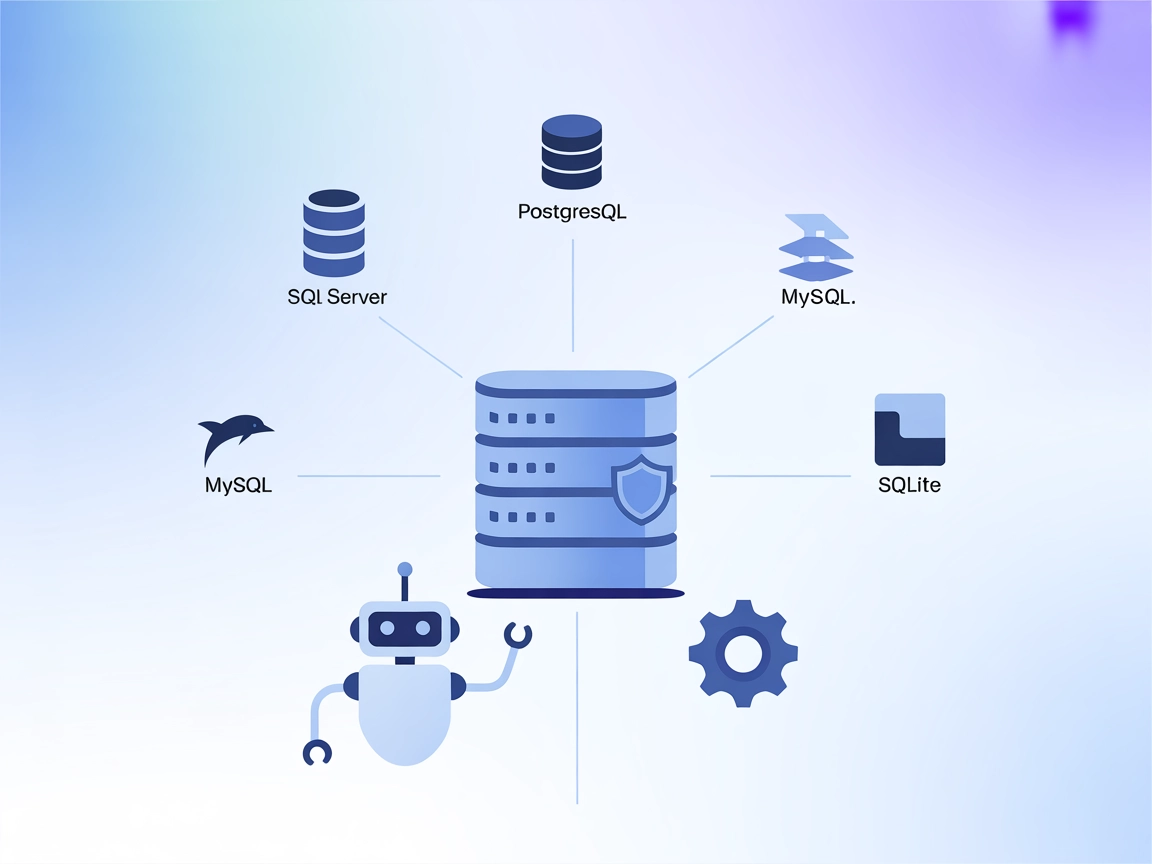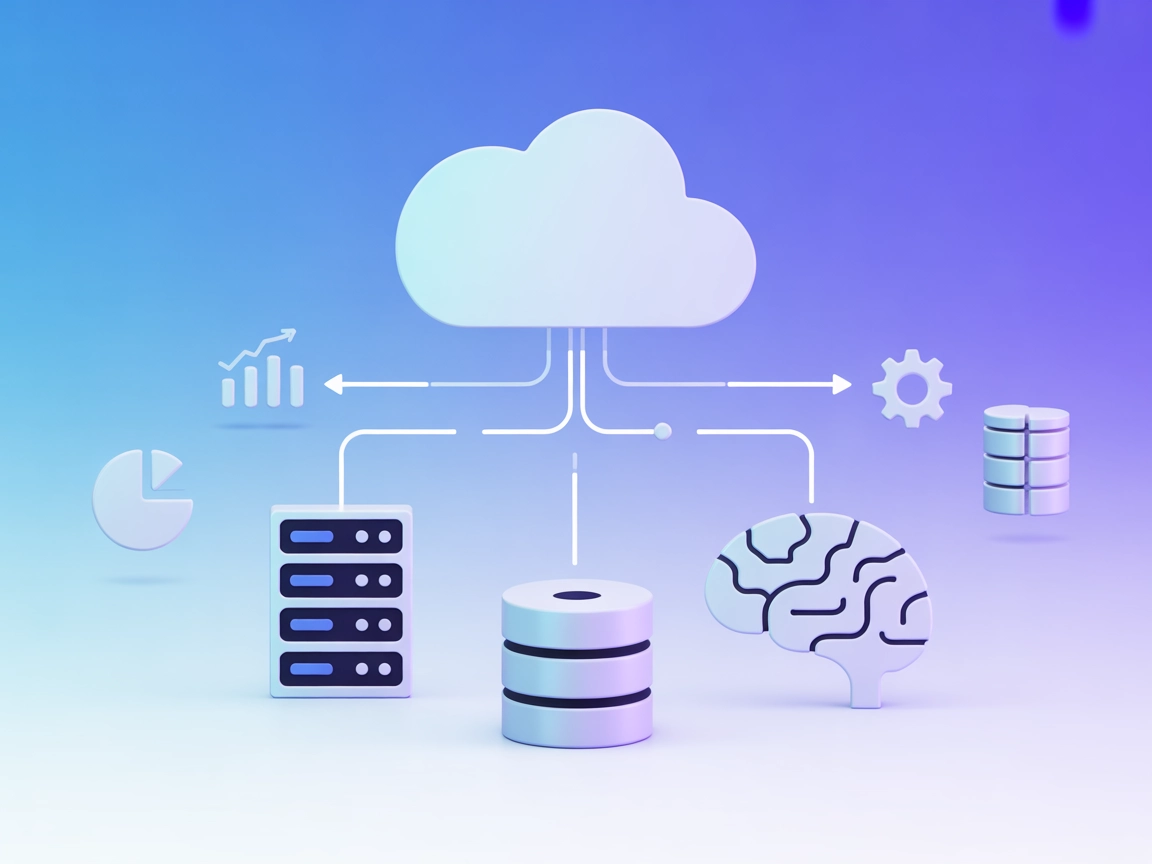
MCP Database Server
The MCP Database Server enables secure, programmatic access to popular databases like SQLite, SQL Server, PostgreSQL, and MySQL for AI assistants and automation...

Connect your FlowHunt flows to InfluxDB for real-time time-series analytics, automated data ingestion, and database management—leveraging AI for smarter, automated insights.
FlowHunt provides an additional security layer between your internal systems and AI tools, giving you granular control over which tools are accessible from your MCP servers. MCP servers hosted in our infrastructure can be seamlessly integrated with FlowHunt's chatbot as well as popular AI platforms like ChatGPT, Claude, and various AI editors.
The InfluxDB MCP Server is a Model Context Protocol (MCP) server designed to provide seamless access to an InfluxDB instance using the InfluxDB OSS API v2. It acts as an intermediary tool that connects AI assistants to time-series data stored in InfluxDB, enabling enhanced workflows for developers and AI systems. Through its standardized interface, the server exposes both resources (such as organizations, buckets, and measurements) and tools (such as querying and writing data), empowering AI clients to perform tasks like executing database queries, managing data buckets, or integrating time-series analytics into their applications. This robust integration ensures that developers can automate data handling, streamline their development processes, and enhance their application’s intelligence by leveraging real-time and historical data from InfluxDB.
influxdb://orgs): Displays all organizations present in the InfluxDB instance.influxdb://buckets): Shows all buckets with associated metadata.influxdb://bucket/{bucketName}/measurements): Lists all measurements within a specified bucket.influxdb://query/{orgName}/{fluxQuery}): Executes a Flux query and returns results as a resource.Ensure Node.js is installed on your machine.
Open the Windsurf configuration file (e.g., windsurf.json or equivalent).
Add the InfluxDB MCP Server to the mcpServers object:
{
"mcpServers": {
"influxdb-mcp": {
"command": "npx",
"args": [
"@idoru/influxdb-mcp-server@latest",
"serve"
]
}
}
}
Save the file and restart Windsurf.
Verify by checking that the InfluxDB MCP Server appears in the MCP server list.
Securing API Keys
Set sensitive values as environment variables. Example:
{
"mcpServers": {
"influxdb-mcp": {
"command": "npx",
"args": [
"@idoru/influxdb-mcp-server@latest",
"serve"
],
"env": {
"INFLUXDB_TOKEN": "${INFLUXDB_TOKEN_ENV}"
}
}
}
}
Install Node.js if not already present.
Locate Claude’s configuration file.
Add the InfluxDB MCP Server to mcpServers:
{
"mcpServers": {
"influxdb-mcp": {
"command": "npx",
"args": [
"@idoru/influxdb-mcp-server@latest",
"serve"
]
}
}
}
Save changes and restart Claude.
Confirm setup via Claude’s interface.
Securing API Keys
(See Windsurf example above.)
Ensure Node.js is present.
Open Cursor’s settings or configuration file.
Add the InfluxDB MCP Server using:
{
"mcpServers": {
"influxdb-mcp": {
"command": "npx",
"args": [
"@idoru/influxdb-mcp-server@latest",
"serve"
]
}
}
}
Save and restart Cursor.
Check the MCP server connectivity.
Securing API Keys
(See Windsurf example above.)
Make sure Node.js is installed.
Edit Cline’s configuration file.
Insert the following under mcpServers:
{
"mcpServers": {
"influxdb-mcp": {
"command": "npx",
"args": [
"@idoru/influxdb-mcp-server@latest",
"serve"
]
}
}
}
Save the file and restart Cline.
Validate that the server is active in Cline.
Securing API Keys
(See Windsurf example above.)
Using MCP in FlowHunt
To integrate MCP servers into your FlowHunt workflow, start by adding the MCP component to your flow and connecting it to your AI agent:

Click on the MCP component to open the configuration panel. In the system MCP configuration section, insert your MCP server details using this JSON format:
{
"influxdb-mcp": {
"transport": "streamable_http",
"url": "https://yourmcpserver.example/pathtothemcp/url"
}
}
Once configured, the AI agent is now able to use this MCP as a tool with access to all its functions and capabilities. Remember to change “influxdb-mcp” to whatever the actual name of your MCP server is and replace the URL with your own MCP server URL.
| Section | Availability | Details/Notes |
|---|---|---|
| Overview | ✅ | Provided in README.md |
| List of Prompts | ✅ | flux-query-examples, line-protocol-guide |
| List of Resources | ✅ | orgs, buckets, bucket measurements, Flux query |
| List of Tools | ✅ | write-data, query-data, create-bucket, create-org |
| Securing API Keys | ✅ | Environment variable example in configuration section |
| Sampling Support (less important in evaluation) | ⛔ | Not mentioned in documentation |
Based on the above, this MCP server is well-documented for its core InfluxDB integration features. It clearly exposes resources and tools, includes prompt templates, and provides good setup guidance. However, advanced MCP features like roots and sampling are not documented, which slightly limits its extensibility for some workflows.
This is a robust, practical MCP server for InfluxDB with clear utility for time-series data and automation tasks. It scores high for practical developer use, though it lacks documentation on advanced MCP features.
| Has a LICENSE | ✅ (MIT) |
|---|---|
| Has at least one tool | ✅ |
| Number of Forks | 6 |
| Number of Stars | 13 |
It bridges FlowHunt (or other AI assistants) to an InfluxDB database, letting you query, write, and manage time-series data using a standardized MCP interface—enabling analytics, automation, and workflow enhancements.
It exposes organizations, buckets, bucket measurements, and supports direct Flux queries. Tools include writing data (line protocol), querying data, creating buckets, and creating organizations.
Use the 'write-data' tool for automated ingestion in line protocol, or the 'query-data' tool for advanced Flux queries—all accessible via FlowHunt flows.
Yes, you should use environment variables to store API tokens or secrets, ensuring credentials are never hardcoded in configuration files.
AI-powered time-series analytics, automated IoT telemetry pipelines, database management for organizations/buckets, and dynamic data exploration—all inside FlowHunt.
Roots and sampling are not currently documented for this server, but all core InfluxDB integration features are robustly supported.
Automate time-series data workflows and empower your AI agents with direct InfluxDB access using the InfluxDB MCP Server in FlowHunt.

The MCP Database Server enables secure, programmatic access to popular databases like SQLite, SQL Server, PostgreSQL, and MySQL for AI assistants and automation...

The AnalyticDB PostgreSQL MCP Server bridges AI assistants with AnalyticDB PostgreSQL databases, enabling seamless execution of SQL operations, schema explorati...

The MSSQL MCP Server connects AI assistants with Microsoft SQL Server databases, enabling advanced data operations, business intelligence, and workflow automati...
Cookie Consent
We use cookies to enhance your browsing experience and analyze our traffic. See our privacy policy.